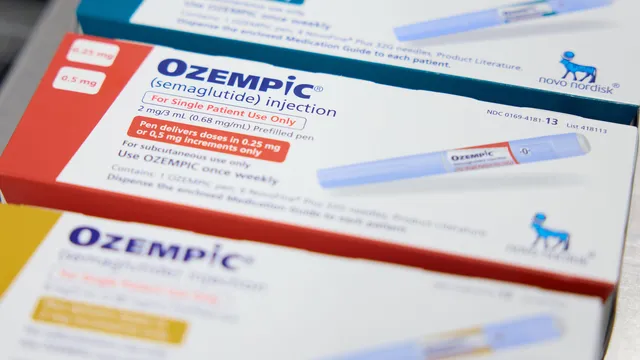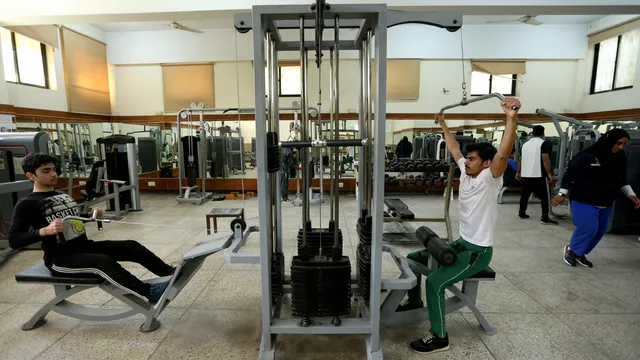As we age, the organs and systems in our bodies begin to slow down and become less efficient, and the heart is no exception, according to Medical News Today (MNT).
According to the authors of a new study, the extracellular matrix (ECM) may play a key role in the decline in heart function that we see with age.
They hope that their research, which uses an innovative new material, may one day help slow down this process.
In this article, we will explain their research and what the future may hold.
We will also provide tips for reducing heart aging that you can start using today.
What is the extracellular matrix?
The extracellular matrix (ECM) is a network of molecules and minerals found between cells. Often referred to as the "skeleton" of the cell, it performs many vital functions.
Depending on its location in the body, it typically provides structural support, prevents different tissues from fusing together, improves communication between cells, and aids wound healing.
Why does this matter for heart health?
According to the authors of a recent publication in Nature Materials, "it is widely recognized that the mechanics, organization, and composition of the ECM change with age."
They explain that these changes in the ECM may play a role in the stiffening of the heart muscle that occurs with aging.
Age-related changes trigger so-called cardiac fibroblasts, which can lead to fibrosis: the accumulation of connective tissue, as seen in scar formation.
Although fibrosis is an important function and helps heart tissue recover after damage, when it is not controlled, it leads to a stiffer, less flexible ECM. In the case of the heart, this can make it less effective at pumping blood.
Focusing on ECM is a relatively new approach. "Most research on aging focuses on how cells change over time," explains Jennifer Young, senior author of the study and assistant professor at the Institute of Mechanobiology at the National University of Singapore. "Our study, however, looks at the ECM and how changes in this environment affect the aging of the heart."
DECIPHER: a hybrid biomaterial
To help uncover the role of ECM in heart health, the team developed a new high-tech model called DECIPHER (DECellularized In Situ Polyacrylamide Hydrogel-ECM hybrid).
This model was created using rat heart tissue and a lab-made gel that has physical properties similar to those of ECM.
Previously, the authors explain, it was unclear whether changes in cell-to-cell signaling or tissue stiffening were most responsible for age-related decline in heart function.
"The DECIPHER platform solves this problem," explains Avery Rui Sun, first author of the study, in a press release. He explains how this allows "researchers to independently control the stiffening and biochemical signals transmitted to cells—something that no system using natural tissue has been able to do before."
In other words, they could tune the model so that signaling between cells was like in a young heart, but with an older, stiffer ECM. Conversely, they could mimic the biochemical signals of an old heart with a young, flexible ECM.
They found that the "young" cell signaling overcame the negative effects of the stiffer ECM. Conversely, young cells placed on "aged" ECM showed signs of dysfunction.
This suggests that "the biochemical environment around old heart cells is more important than the stiffness itself," explains Young.
What does all this mean?
MNT spoke with Dr. Nishant Kalra, an interventional cardiologist and chief medical officer at VitalSolution, an Ingenovis Health company, who was not involved in the study.
"Surface molecules (ligands) found in young heart tissue can prevent the activation of cells that promote fibrosis, even when the tissue is as stiff as aged heart tissue, pointing to new ways to target the extracellular environment to slow heart aging," he said.
Next steps: Human studies
"This work provides a platform for identifying molecular mechanisms and potential therapeutic targets for preventing or reversing age-related heart dysfunction. Although promising, translating this into a therapy for humans requires further validation, as the study used cells from rats," said Dr. Nishant Kalra.
While intriguing, countless studies and many years will be needed before these findings lead to new treatments. However, there are many scientifically supported lifestyle changes that will support your heart as you age.
How to protect your heart as you age
We asked Dr. Kalra for advice on maintaining a healthy heart. "When it comes to preventing heart aging through lifestyle, the best evidence-based strategies are:"
- Regular aerobic exercise: At least 150 minutes of moderate-intensity or 75 minutes of vigorous-intensity aerobic activity per week
- Healthy diet: Emphasize fruits, vegetables, whole grains, and lean proteins while limiting saturated and trans fats, cholesterol, and sodium—for example, through the Mediterranean or DASH diets
- Quit smoking: Tobacco damages blood vessels and increases the risk of heart disease
- Get enough sleep: Aim for 7–9 hours of quality sleep per night. Lack of sleep can negatively affect the heart
- Weight control: Obesity is a major risk factor for heart disease
- Stress reduction: Find healthy ways to cope with stress, such as exercise, meditation, or spending time in nature
"These behaviors," he adds, "have been consistently linked to reduced biological and cardiovascular aging, as shown in large epidemiological studies and supported by the American Heart Association."
MNT also spoke to Dr. Daniel Atkinson, a family doctor in the United Kingdom working for the private healthcare company Treated. He also recommended reducing alcohol consumption:
"Keep it below 14 units (approximately 4–5 drinks) per week, avoid drinking more than 3 drinks at a time, and give your body (and your heart and liver) at least 48 hours of rest from alcohol each week," said Dr. Daniel Atkinson.
"Excessive alcohol consumption carries a number of health risks," Atkinson said, "including the effect it can have on raising blood pressure, which increases the risk of heart disease."
He explains how drinking too much alcohol can weaken the heart muscle, making it harder for the heart to pump blood around the body. |BGNES

 Breaking news
Breaking news
 Europe
Europe
 Bulgaria
Bulgaria







